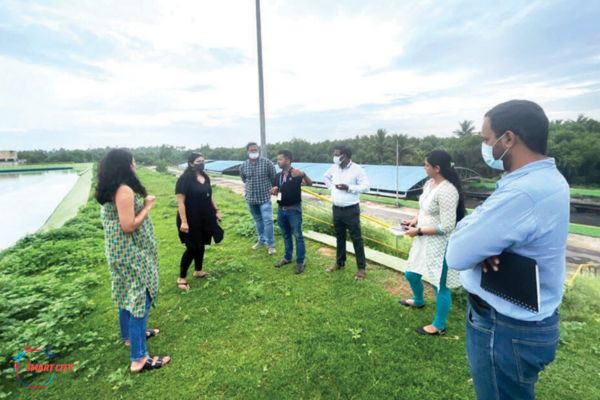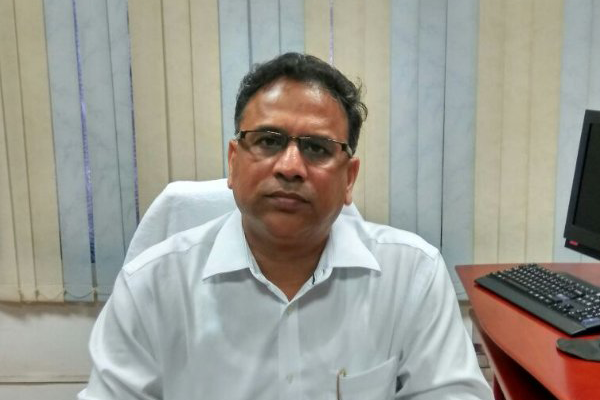
Odisha’s pioneering approach towards ensuring safe and inclusive sanitation for all has made the state a frontrunner in the sector. The Housing and Urban Development Department (H&UDD), the nodal department for urban development in Odisha, has taken significant steps to ensure inclusive and high-quality sanitation service delivery across cities in the state through innovative, technology-backed solutions. The model has immense potential to be scaled across the country and catalyse India’s sanitation journey to meet our goal of ensuring safely managed sanitation in all Indian cities by 2030.
The Crucial Need for Transparency Across the Sanitation Value Chain
The sanitation sector faces various roadblocks on its journey to sustainable sanitation for all. One of the major obstacles is the lack of transparency in data and communication across the sanitation value chain. Citizens have no visibility or closure on where the waste goes once it has been collected from their septic tanks. Additionally, the lack of a grievance redressal mechanism for citizens to file complaints means there is a severe lack of accountability in the sanitation ecosystem. As a result, there is no visibility of gaps in the value chain or areas of improvement, and a major disconnect exists between citizens and the consequences of their waste once it is flushed down the toilet. Therefore, it is crucial for the sanitation ecosystem of a city to have monitoring systems in place to ensure transparency and accountability among stakeholders.
SUJOG: A Digital Monitoring System with a Unique Platform- based Approach
In order to address these issues, the H&UD department of Odisha has launched Sustainable Urban Services in a Jiffy by the Odisha Government (SUJOG). SUJOG is powered by a free, open-source platform called Digital Infrastructure for Governance, Impact, and Transformation (DIGIT), developed by eGov. DIGIT has already been implemented in 36 Urban Local Bodies (ULBs) across Odisha, and the H&UDD plans to expand its usage to 113 ULBs in the next phase.
As a product of the Platform Thinking Approach, DIGIT is a free, open-access platform that brings together a network of developers, enterprises, governments, and citizens in urban governance. The platform is customisable and easy to implement, providing solutions to challenges in various municipal services, including faecal sludge and septage management (FSSM). It enables stakeholders to assume responsibility and be held accountable for a common unified goal. This ensures that all aspects of sanitation management are integrated, rather than existing in isolation, resulting in tangible impact through timely implementation, process optimization, accountability, and transparency at different administrative levels.
Impact of SUJOG on Strengthening the Sanitation Ecosystem
SUJOG enables the collection of data, allowing for gaps and areas of improvement to be identified across the sanitation value chain. Furthermore, the performance of these solutions can be monitored to ensure their effectiveness over time. Since citizens can use the SUJOG portal to air their grievances, there is a constant feedback loop from users on the performance of sanitation services. As a result, the sanitation ecosystem continuously evolves to become efficient and deliver high-quality service to all.
How SUJOG Empowers Citizens and Safeguards Public Health and the Environment
SUJOG’s minimal design makes it simple for both citizens and sanitation professionals to use. It effectively empowers citizens to track their waste across the entire sanitation value chain, creating awareness of what happens to human waste after it is flushed, and potentially instilling a desire for accountability for the safe management of their waste. Digital monitoring allows citizens to see whether their waste has gone through the proper stages of treatment and safe disposal/reuse, and it embeds accountability from service providers, thereby preventing the dumping of faecal sludge and septage into open water bodies, which is a hazard to both the environment and public health.
Also Read | Revitalising Cultural Landscapes
Catalysing India’s Sanitation Journey through SUJOG and DIGIT
SUJOG is an excellent learning model with immense potential for replication across states, supported by the DIGIT platform. Since DIGIT is an open-source platform, it enables multiple states to contribute their learnings to the source code and build upon one another’s insights. This would not only aid in the improvement of sanitation service delivery in other states but also improve the platform itself as each state builds on one another’s learnings. Its easy integration and interoperability features allow for lower coordination costs, increased visibility, and provide a foundation for future evolution.
Therefore, the scaling of DIGIT across cities in India has the potential to significantly accelerate India’s sanitation journey and ensure safely managed waste across 7900+ cities by 2030.
Note: This article is developed by the National Faecal Sludge and Septage Management (NFSSM) Alliance, a collaborative body driving the discourse of Faecal Sludge and Septage Management (FSSM) in India.





















